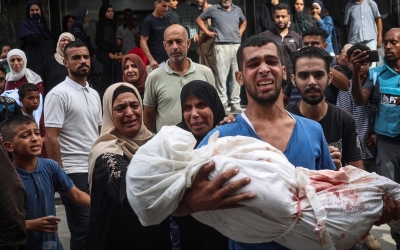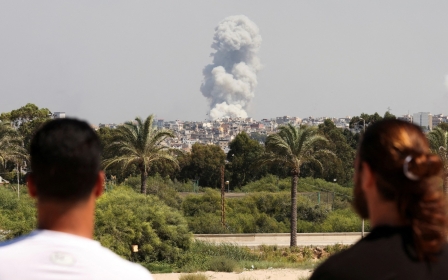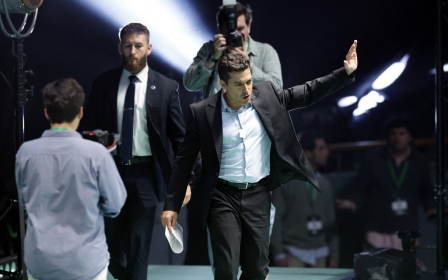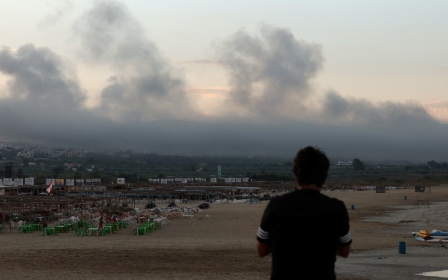Lebanon: Israeli bombing kills 11 members of one family
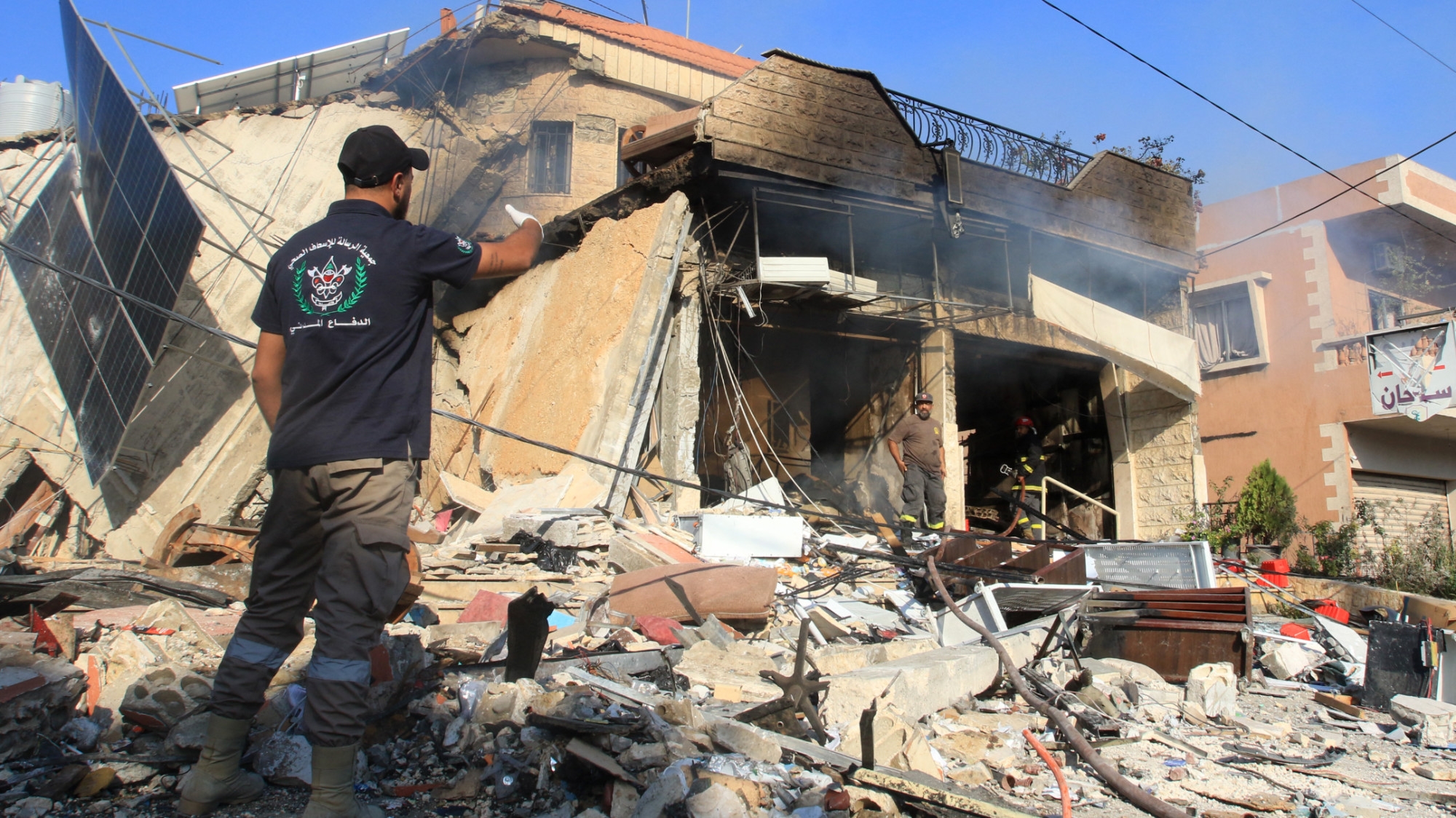
Israeli air strikes killed at least 11 members of the same family in a bombing on their home in eastern Lebanon’s Beqaa Valley on Tuesday.
The house in the village of Shaath belonged to Hamza Hajj Hassan, who was killed along with several nephews, according to Al Mayadeen.
A correspondent at the TV station said at least nine people were pulled from the rubble of the flattened house and the remains of two more were still being collected.
The house was struck by more than one bomb, he added.
Inspecting the scene, the reporter said everyday items, including textbooks for teenagers and toys for toddlers, could be seen among the rubble.
New MEE newsletter: Jerusalem Dispatch
Sign up to get the latest insights and analysis on Israel-Palestine, alongside Turkey Unpacked and other MEE newsletters
There were no signs of any military equipment at the site, he said, as local families worked to clear the debris.
The strike was part of Israel's ongoing heavy bombing campaign across southern and eastern Lebanon, launched on Monday.
According to Israel's Channel 12, the Israeli Air Force dropped 2,000 munitions in 24 hours.
By noon on Tuesday, at least 558 people had been killed, including 50 children and 94 women, according to the Lebanese health ministry. More than 1,835 people had been wounded.
'Whether you've sent out a warning you're telling civilians to flee doesn't make it okay to then strike those areas'
- Ravina Shamdasani, UN Human Rights Office spokesperson
Some hospitals across the country are “overwhelmed” by the large number of wounded, according to Abdinasir Abubakar, a World Health Organization (WHO) official in Lebanon.
The Israeli strikes have killed at least four healthcare workers, Abubakar told reporters on Tuesday.
"We have some evidence and we have some documentation that shows that at least there were some attacks on health facilities, even the ambulances as well," he said.
The Israeli bombing has also forced thousands of families to flee north in search of safety.
People across the country received phone calls from Israeli authorities ordering them to leave their homes.
However, Ravina Shamdasani, spokesperson for the UN Human Rights Office, said the short-notice warnings, sometimes giving people as little as two hours to flee, do not make the subsequent bombings legitimate.
"Whether you've sent out a warning you're telling civilians to flee doesn't make it okay to then strike those areas, knowing full well that the impact on civilians will be huge," Shamdasani said at a press briefing in Geneva.
Accelerating Israeli offensive
The Israeli military, which dubbed the bombing campaign “Operation Northern Arrows", said on Tuesday that it was conducting more waves of air strikes across Lebanon.
It says the attacks target Hezbollah's military assets. However, media reports confirm that civilian homes and health centres have been bombed, with many civilians among those killed and wounded.
Herzi Halevi, the Israeli army's chief of staff, said on Tuesday that Israel would accelerate the offensive and attack with “all our might”.
In response to the Israeli bombardment, Hezbollah continued to fire dozens of rockets deep into northern Israel, claiming several attacks on various Israeli military targets.
No Israeli deaths have been reported from the rocket attacks.
Hezbollah, which was born out of resistance to Israel’s 1982-2000 occupation of south Lebanon, says it is not seeking a wide-scale war with Israel and is fighting in solidarity with the Palestinians under attack in Gaza.
A source close to Hezbollah told Middle East Eye that the movement will maintain its strategy of responding to Israeli attacks in kind, explaining that "its escalation will match Israel’s level of escalation”.
However, the source noted that the group has recently shown a degree of flexibility. Hezbollah has long maintained that its current conflict with Israel, which began when Israel’s war on Gaza broke out, would end when Hamas and the Israeli government reach a ceasefire.
More recently, though, Hezbollah has said it is prepared to cease hostilities if the attacks on Gaza end without a formal long-term truce.
This past week has witnessed the heaviest round of Israeli attacks in the current conflict so far.
On Friday, an Israeli air strike on a densely populated suburb in southern Beirut killed at least 45 people, including several women and children.
Hezbollah said 16 of its members were killed in the strike, including senior leader Ibrahim Aqil and top commander Ahmed Wahbi.
The attack followed two days of Israeli strikes targeting booby-trapped pagers and radios commonly used by Hezbollah members.
At least 39 people were killed in those attacks and more than 3,000 were wounded.
Middle East Eye delivers independent and unrivalled coverage and analysis of the Middle East, North Africa and beyond. To learn more about republishing this content and the associated fees, please fill out this form. More about MEE can be found here.


